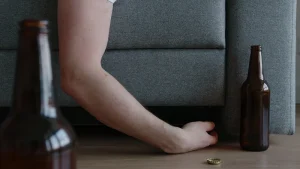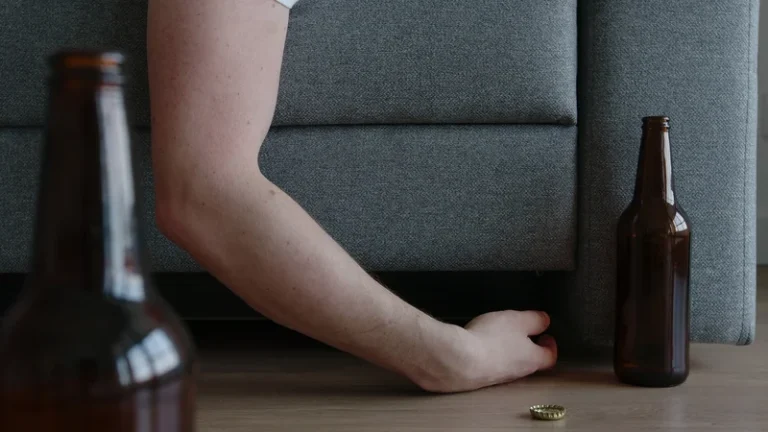
Behavioral therapies can help people develop skills to avoid and overcome triggers, such as stress, that might lead to drinking. Medications also can help deter drinking during times when individuals may be at greater risk of a return to drinking (e.g., divorce, death of a family member). The results showed percent heavy drinking days decreased in both groups with no difference. PTSD scores were lower in PE+topiramate at posttreatment but not at follow-ups.
What is AUD?
Answer 3 out of 4 questions correctly on the post-test to earn 0.75 credits.
Definition of Alcohol Use Disorder
It also includes binge drinking — a pattern of drinking where a male has five or more drinks within two hours or a female has at least four drinks within two hours. Several evidence-based treatment approaches are available for AUD. One size does not fit all and a treatment approach that may work for one person may not work for another. Treatment can be outpatient and/or inpatient and be provided by specialty programs, therapists, and health care providers. A health care provider might ask the following questions to assess a person’s symptoms. The content of this site is intended for healthcare professionals.
Alcohol use disorder
- A healthy diet with vitamin supplements, especially B vitamins, is helpful.
- The information on this site should not be used as a substitute for professional medical care or advice.
- Your provider may recommend additional testing, a referral to a specialist, or a trial of treatment to see if symptoms improve.
- Alcohol use disorder (sometimes called alcoholism) is a common medical condition.
- Many of our patients find that they’re an important part of recovery.
Realizing you may have an issue is the first step toward getting better, so don’t hesitate to talk to a healthcare provider. They’ll recommend treatments and resources to help you recover from alcohol use disorder. Many people with alcohol use disorder hesitate to get treatment because they don’t recognize that they have a problem.

Match Day 2025: Reflections From a Current Resident
If you do have any symptoms, then alcohol Sober living home may already be a cause for concern. A health care professional can look at the number, pattern, and severity of symptoms to see whether AUD is present and help you decide the best course of action. If you think you might have an AUD, see your health care provider for an evaluation. Your provider can help make a treatment plan, prescribe medicines, and if needed, give you treatment referrals. Return to drinking after a period of abstinence is a possibility for those with alcohol use disorder. This disorder makes changes in the brain that can make drinking very hard to give up.
Prolonged IgM Response in Tick-Borne Encephalitis and Recovery
When reducing alcohol intake, your sleep quality and quantity can improve almost immediately. Residential treatment programs typically include licensed alcohol and drug counselors, social workers, nurses, doctors, and others with expertise and experience in treating alcohol use disorder. For serious alcohol use disorder, you may need a stay at a residential treatment facility. Most residential treatment programs include individual and group therapy, support groups, educational lectures, family involvement, and activity therapy.


Acetaldehyde is considered a probable carcinogen and a known toxin. While it may take some time, over a period, your risk of cancer will reduce (4). is alcoholism considered a mental illness After years of alcohol use, the liver has strong regenerative ability. That said, it takes the hit of alcohol damage strongly, especially over time and with excessive use.

If you have severe alcohol use disorder and you stop drinking completely all at once, you could experience serious withdrawal symptoms, such as seizures. Many people with alcohol use disorder find it very difficult to quit without medication or therapy. In fact, some research suggests that repeated return to drinking is influenced by systems in the brain that are not under conscious control. After withdrawal, doctors recommend that patients continue treatment to address the underlying alcohol use disorder and help them maintain abstinence from or achieve a reduction in alcohol consumption.
- The diagnosis, based on the Diagnostic and Statistical Manual of Mental Disorders, Fifth Edition, criteria, ranges from mild to severe, with withdrawal symptoms and tolerance as key indicators.
- After detoxification, many people with alcohol disorders need some form of long-term support or counseling to remain sober.
- It can be hard to identify the lines between casual and occasional drinking and unhealthy alcohol use including alcohol use disorder.
- Some people will go through periods where they remain sober, but then relapse.
On average, an alcoholic who doesn’t stop drinking can expect to decrease his or her life expectancy by at least 15 years. There’s a reason why you can’t remember details from your previous night of drinking with friends. Chronic usage can lead to difficulty making, storing, and codifying memories.
